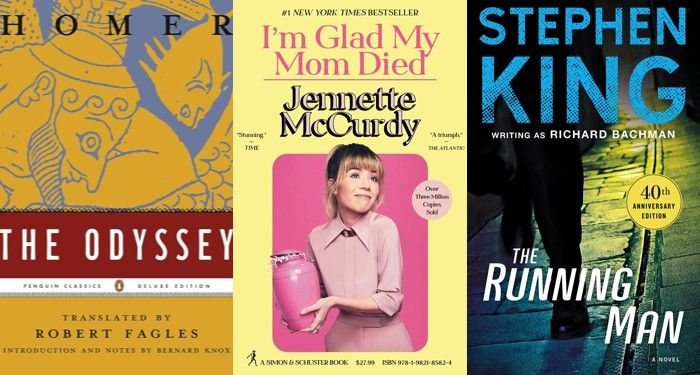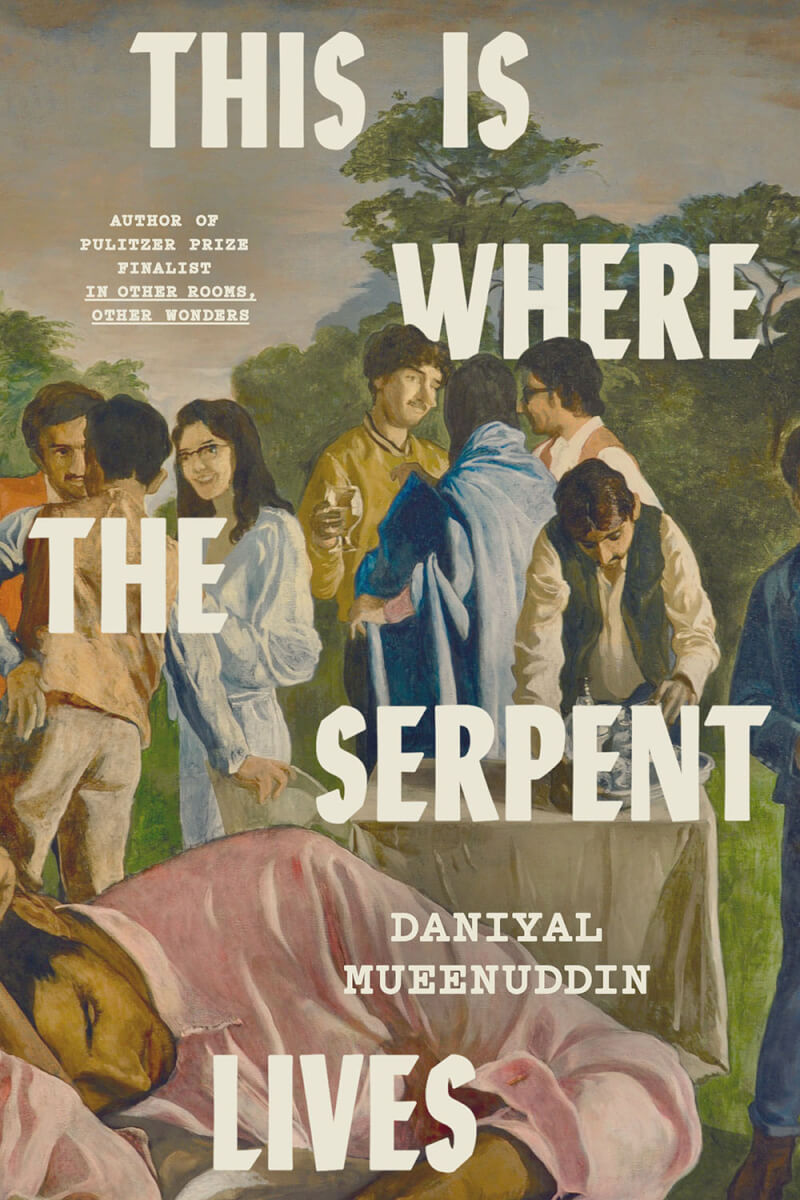
★ Berry Song
A reverent and joyful celebration of berry picking, Berry Song is the stunning authorial debut of Caldecott Medalist Michaela Goade, an enrolled member of the Tlingit and Haida Indian Tribes of Alaska.
As a girl and her grandmother pick berries in the Tongass National Forest, located not far from the author-illustrator’s home in Sitka, Alaska, Goade poetically describes nature’s many bounties and conveys the need for humans to be Earth’s stewards. All the while, she never loses sight of those yummy berries! Choral litanies of berry names (“Salmonberry, Cloudberry, Blueberry, Nagoonberry. / Huckleberry, Soapberry, Strawberry, Crowberry.”) keep the tone light and playful.
Once the pair return home, they transform their harvest into treats such as huckleberry pie and nagoonberry jam. The book ends by depicting how its wisdom continues to pass from generation to generation as the narrator, now an adult, leads her younger sister into the forest. “I have so much to show you,” she says.
Goade’s energetic artwork imbues the book’s natural setting with an enchanting, otherworldly beauty. The poster-worthy first spread welcomes readers with a spirit of adventure as the young narrator, arms outstretched in the wind, rides with her grandmother in a motorboat over a “wide, wild sea” toward the forest. Bright blue and red berries “glowing like little jewels” provide a striking contrast to the deep and verdant woods that teem with wildlife. In several illustrations, human and flora appear to merge, with leaves sprouting from hair or tree limbs extending from arms or hands, reflecting a call and response exchange between the girl and her grandmother: “‘We are a part of the land . . .’ ‘As the land is a part of us.’”
Excellent backmatter includes photos of some of the berries mentioned in the book, information about the role that berries play in the lives and culture of the Tlingit people and Goade’s personal reflections on some of the book’s key concepts including gunalchéesh, a Tlingit word spoken to express gratitude.

Keepunumuk
A modern-day Wampanoag grandmother tells her grandchildren the story of the first Thanksgiving from a new perspective in Keepunumuk: Weeâchumun’s Thanksgiving Story. “Here’s what really happened,” she says.
Co-authors Danielle Greendeer, Anthony Perry and Alexis Bunten set the stage effectively through two sections of text, titled “Before you begin” and “Important words to know,” placed between the book’s title page and the beginning of the narrative. They explain that the Wampanoag people lived in their ancestral homeland for 12,000 years, which is why they are referred to as “the First Peoples” throughout the book.
The grandmother narrates the story of the Three Sisters (Beans, Squash and Weeâchumun, or Corn), whom illustrator Garry Meeches Sr. portrays as spectral elders. When Seagull announces that newcomers have arrived, Weeâchumun asks Fox to watch them and report back. Fox relays that the starving newcomers have found corn seeds but don’t know what to do with them, so the sisters converse with Deer, Rabbit and Turkey about the best course of action. “We will send the First Peoples to help the newcomers,” Weeâchumun concludes.
After a Wampanoag man named Tisquantum, also known as Squanto, teaches the newcomers how to grow crops, they invite the First Peoples to celebrate Keepunumuk, the harvest. “That meal changed both our lives and theirs forever,” the grandmother explains to her young listeners. “Many Americans call it a day of thanksgiving. Many of our people call it a day of mourning.” “That’s different from what we learn in school,” one of the children replies.
Meeches’ illustrations incorporate familiar images of the Wampanoag people’s early encounters with the Plymouth settlers but stay focused on the First Peoples, their beliefs and the land itself. Many scenes unfold against deep blue skies and natural landscapes, and when the Three Sisters appear, they’re often accompanied by lovely curling, twining tendrils. A somber page that depicts the silhouettes of the First Peoples who were “taken by sickness” is particularly striking.
With a skillful balance of detail and simplicity that’s just right for young readers, Keepunumuk offers a vital viewpoint on the national Thanksgiving holiday.

Still This Love Goes On
To create Still This Love Goes On, acclaimed Cree Métis artist Julie Flett faced an unusual challenge: to illustrate a song from Canadian American musician Buffy Sainte-Marie’s 2009 album, Running for the Drum.
In an author’s note, Sainte-Marie explains that the images she describes in her song’s lyrics were “like taking photos with my heart of all that I see on the reserve.” As she wrote, she wanted to express her love “for it all, day after day, year after year—especially the people and our Cree ways, precious like the fragrance of sweetgrass.” The book’s backmatter includes complete lyrics and sheet music.
Flett’s vibrant presentation celebrates the power of family and the immense beauty of open spaces. In the first spread, a mother and child sit together, surrounded by a vast expanse of ice tinged with blue and pink, and watch “the winter grow.” Subsequent spreads evoke changing seasons and the passage of time amid wonderful vistas: A woman and child gaze at the ocean as a whale breaches the surface of the water; a child runs through a mountain meadow filled with yellow flowers; a herd of buffalo gallops toward a distant rainbow. A series of images that depict a drum circle, two jingle dancers and a girl singing and playing her guitar are almost audible as they echo both Sainte-Marie’s lyrics and the feelings evoked by her music.
Still This Love Goes On transforms a memorable song into a moving and heartfelt visual poem. A worthy homage to Cree people, lands and traditions, it’s a reassuring read-aloud that will encourage young readers to reflect on the places and people they love.





